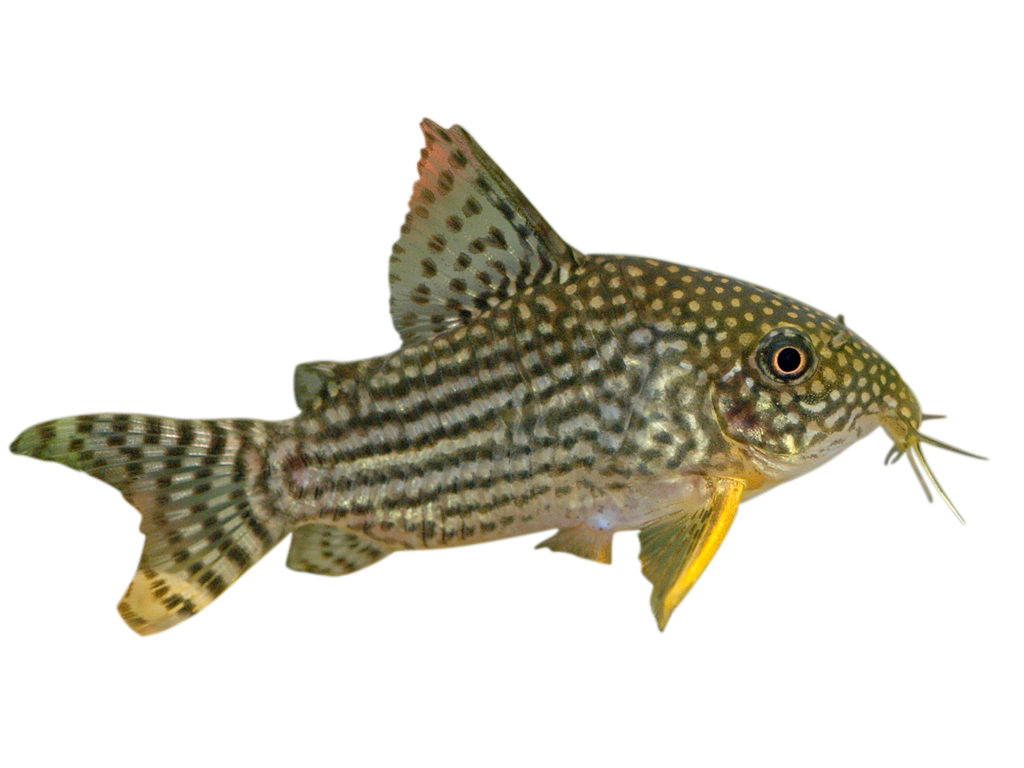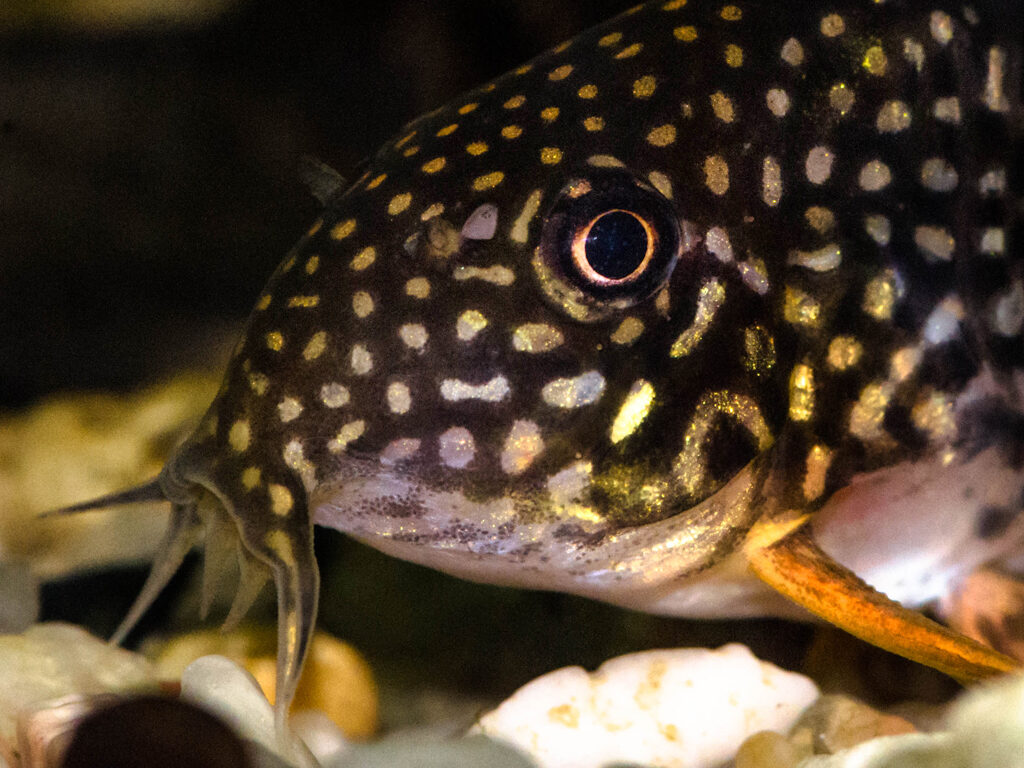Sterba’s corydoras
Corydoras sterbai

Venomous fin spines and sensitive beard
Sterba’s corydoras is a bottom-dwelling fish. It thrives among rocks and the roots of plants on the bottom, where it can hide. The species lives in freshwater rivers, preferably where there is some current. Sterba’s corydoras has orange pectoral fins that are venomous if stung by them. Being stung hurts, but is not dangerous for a human. These fins are mainly a defence against predators.
Around its mouth, Sterba’s corydoras has sensitive beard-like whiskers called odontodes. They are used when the fish is looking for food in the sand on the bottom. The fish is found in shoals, and also uses its beard for communicating with other members of the species.

During mating, the female is held firmly
Sterba’s corydoras have no scales, instead they have bone plates on their bodies. Females are slightly larger than males and they stick together in pairs. When the Sterba’s corydoras is mating, the male will hold her in place. The female then attaches the eggs to the leaves of plants, and they both defend them. The species is a popular and common aquarium fish.
Distribution worldwide
South America, Brazil and Bolivia.
White markings = Distribution

Threat based on the Red List

Trade regulations
CITES: Not listed.